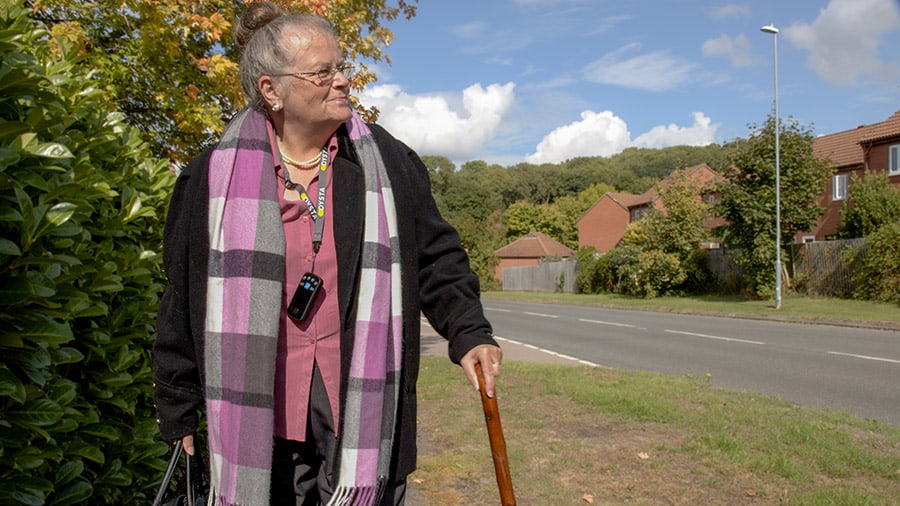Council trials care tech that helps residents return home from hospital three days faster

Camden Council, in partnership with Oysta, has successfully piloted an assistive technology device to allow residents to return from hospital three days faster, on average, and be fully supported to recover at home.
The assistive technology service is helping ease pressure off the NHS and free up vital bed space.
So far, the Oysta care device has supported over 200 residents who were medically fit enough to be discharged from hospital but required ongoing social care support at home to leave hospital sooner.
The ‘Help at Home’ mobile device, provided to residents who are supported by Camden Council’s adult social care service, has a falls sensor, status alerts, and an SOS button linked to an alarm-receiving centre. This allows people to recover independently at home with the reassurance that help is readily available if they need it.
Residents who were given the device returned home on average three days sooner than those waiting for a social care assessment before they could leave hospital, freeing up hospital beds and helping to address patient backlogs.
Calls from the devices go to Camden Council’s ‘Careline’, which allows care teams to respond to calls directly.
Councillor Anna Wright, Cabinet Member for Health, Wellbeing and Adult Social Care, said: “These Help at Home devices have allowed people to return to their own homes faster, with the confidence that they have technology-based support at the touch of a button.
“Using these devices, linked to our Careline team, not only provides peace of mind to the individuals and their families but allows the hospital social work teams to develop a plan to support people with what matters to them. But it’s more than just an alarm: our residents can talk directly to our teams through their devices, who also receive alerts in situations such as someone having a fall, allowing us to send a team around to help.”
Following this successful trial, the care device will now be used permanently for adult social care users in Camden who are returning from hospital.
Mario Zuccaro, Founder of Oysta, commented: “What we’ve demonstrated in Camden is that not only can our device free up beds for other patients with urgent need for treatment, but we can reduce the unnecessary risk that a longer than necessary stay in hospital can bring.
“Some people around the country are waiting weeks for their care assessments and by using an Oysta device they have something to keep them safe and monitored which also takes the strain off under pressure social care teams who can schedule in visits in the person’s home when they have returned from hospital.”
Since the pilot started in July 2021, 210 people in Camden have used ‘Help at Home’, saving an estimated 630 bed days, equating to £252,000 in financial savings, according to Oysta.
A Camden resident who was given an Oysta care device explained: “After a long stay in hospital I was desperate to get back to my own home. The staff at the hospital gave me a device whilst I was still on the ward so I could get used to it and I was surprised how easy it was to use.
“On one occasion I used my Oysta Pearl to call for help after a fall and within 20 minutes the Careline team were at my door to help me. I would recommend it to anyone in my position who was medically fit to be discharged. I had a care assessment when I was back at home and the Council were able to provide me with the things I needed to stay in my own home.”
Telecare, and technology-enabled care (TEC) more broadly, is an area of assistive technology that has been increasingly recognised for its user benefits, cost savings, and ability to ease pressure off health and social care services over the past few years.
Recently, Scottish housing and care provider Bield saw a 75 percent reduction in ambulance callouts and a 68 percent reduction in A&E visits, thanks to a successful telecare pilot.
In the summer of 2022, Kirklees Council approved £1.3 million funding to buy digital carephone devices for 3,500 residents ahead of the analogue switch-off in 2025.
Last year, NHS Education for Scotland released an e-learning module for health and social care professionals that is designed to increase the awareness, knowledge, and confidence of the workforce to better understand the role of telecare in assessment and support planning. It provides information and practice examples of how telecare can support outcomes-focused care and support.

